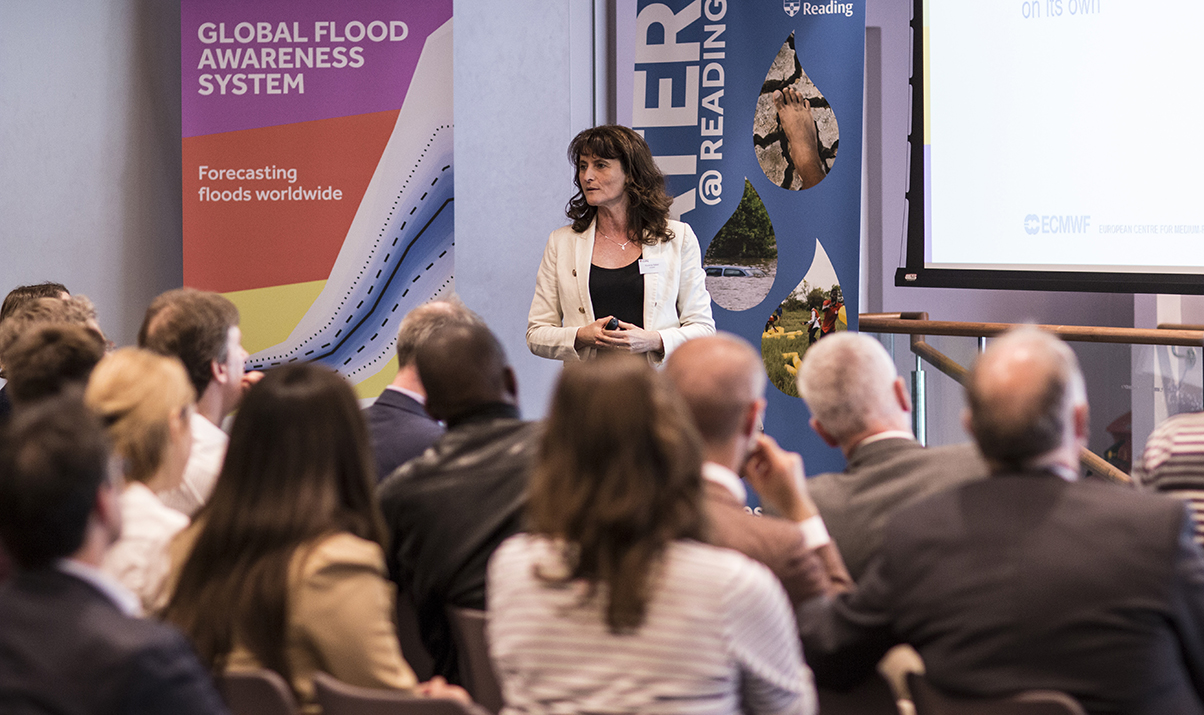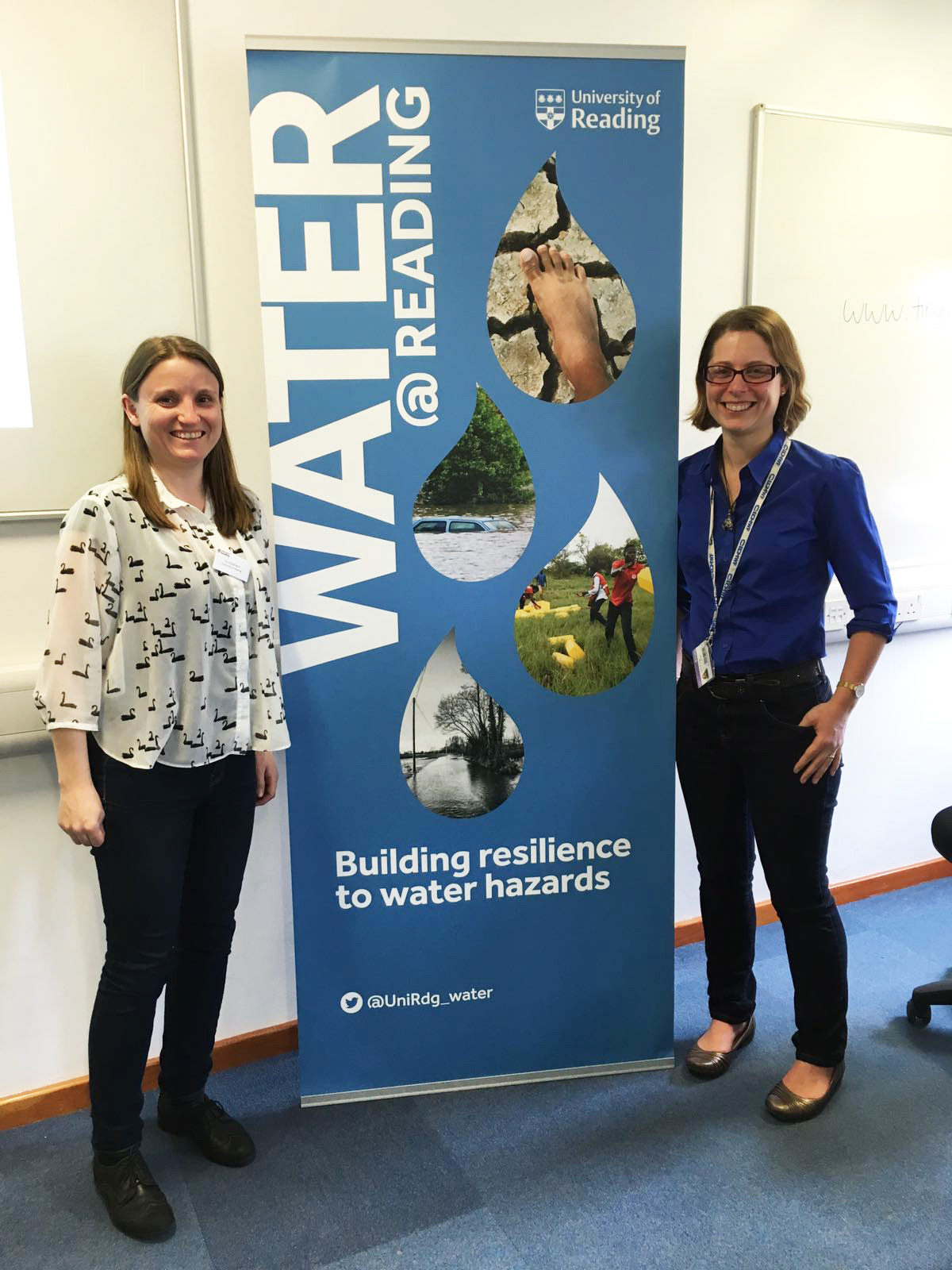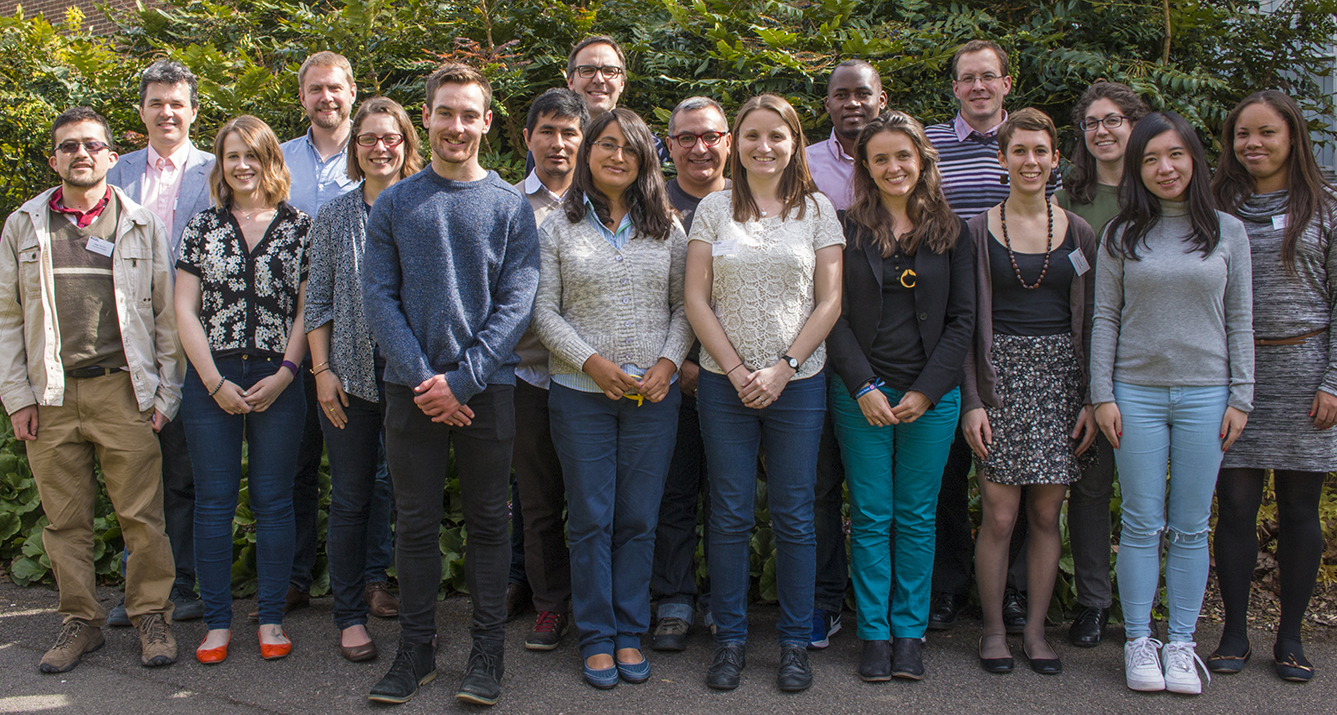From 4 to 6 May, the University of Reading held the first Global Flood Awareness System (GloFAS) community workshop, aimed at supporting the integration of GloFAS forecasts into existing national and local forecasting capabilities. The workshop, led by Professor Hannah Cloke and Dr Liz Stephens (University of Reading), included seminars, practical activities and discussion sessions.

Workshop participants came from ECMWF and the University of Reading, alongside the Servicio Nacional de Meteorología e Hydrología del Perú (SENAMHI), the Red Cross/Red Crescent Climate Centre (RCCC), the Mozambique Red Cross, the Belize Hydromet Service, the Xiamen Weather Service Centre and the European Commission Joint Research Centre (JRC).
Open event

The event began with an afternoon of seminars followed by a poster session, attended by 80 delegates from across the globe, including forecasters, policy makers, academics and decision makers, all interested in learning about GloFAS and the use of global forecasts. Florence Rabier, the Director-General of ECMWF, gave the first keynote presentation, providing an insight into the role of ECMWF and its forecasts, and how GloFAS came to be. In a second keynote talk, Dr Nicola Ranger of the Department for International Development (DFID) discussed how DFID make use of a range of forecasts, both directly and indirectly. Further presentations were given by Erin Coughlan de Perez from the RCCC, Professor Ros Cornforth, the director of the Walker Institute, and Dr Peter Salamon, the GloFAS project manager at the JRC.
Interactive sessions

The following two days focused on the use and integration of GloFAS forecasts. They included training sessions provided by Hannah Cloke and Liz Stephens on ensemble forecasting, hydrological modelling and decision-making with probabilistic forecasts, and by Peter Salamon on the GloFAS interface and forecasts. The workshop also involved several interactive sessions. The first of these, led by Liz Stephens, provided training for participants on how to access and interpret the output of GloFAS forecasts. This involved accessing and plotting the forecast data using different visualisations and discussing the pros and cons of each in the context of decision-making. A second session, run by PhD students Louise Arnal and Rebecca Emerton (University of Reading and ECMWF), focused on evaluating the forecasts using different verification metrics and skill scores. Ervin Zsoter and Paul Smith (ECMWF) designed a further session, led by Ervin, on post-processing of GloFAS forecasts, where participants were able to apply two bias correction techniques in an attempt to improve the forecasts in different river basins using available river flow observations.

ECMWF and GloFAS
ECMWF is developing the Global Flood Awareness System (GloFAS) in cooperation with the European Commission Joint Research Centre (JRC) and the University of Reading. GloFAS combines the Centre's medium-range weather forecasts with a hydrological model to provide global forecasts of flood events. GloFAS users include national and regional water authorities, water resource managers, hydropower companies, civil protection and first line responders, and international humanitarian aid organisations.
GloFAS community
The workshop provided an excellent opportunity for forecasters and decision makers to receive training from GloFAS model developers at ECMWF and the JRC through tailored courses and interactive sessions. It also provided a platform for discussion of the experiences of forecast users in implementing GloFAS forecasts at the local scale and using these for decision-making. Everyone came away from the event having learnt something valuable about the forecasting system and its use in decision-making for flood events.
A big thank you to the workshop organisers at both the University of Reading and ECMWF, and to the speakers and participants, who helped make the event such a success.
This workshop was funded by the GFDRR/DFID Challenge Fund and a research impact award made by NERC to Professor Hannah Cloke, with further support from the University of Reading and the Walker Institute.

